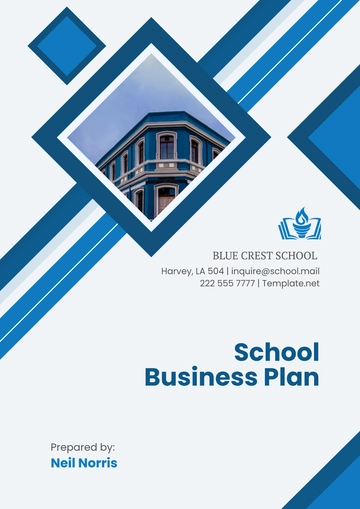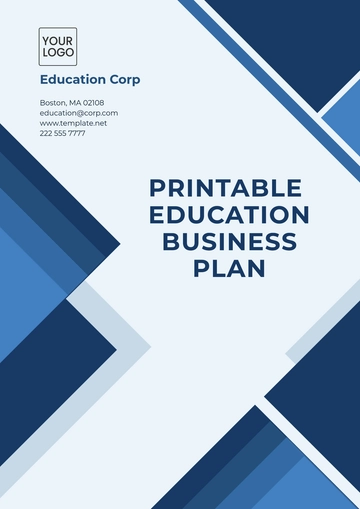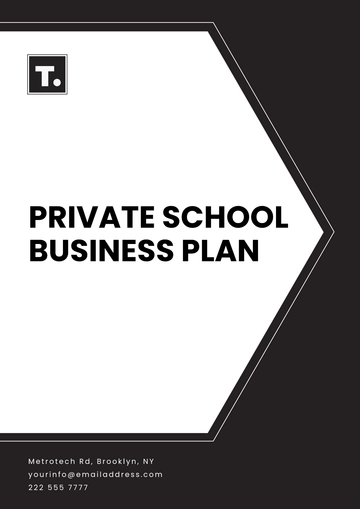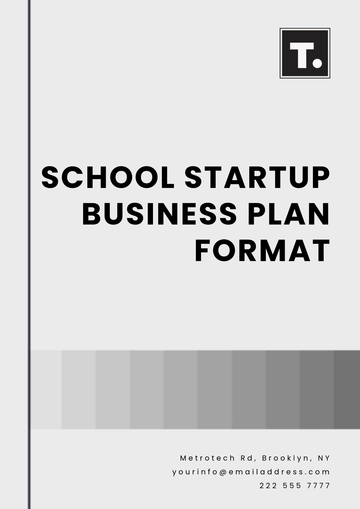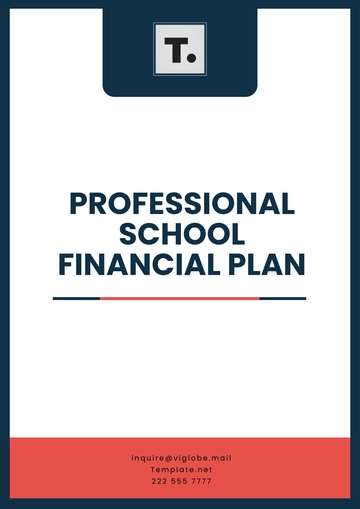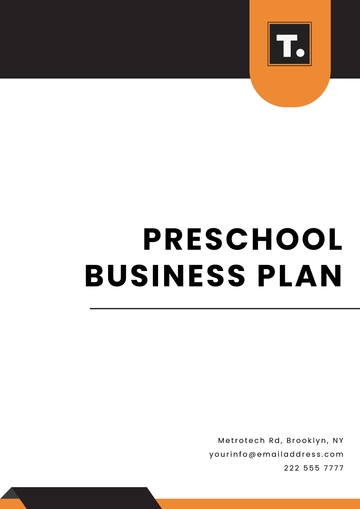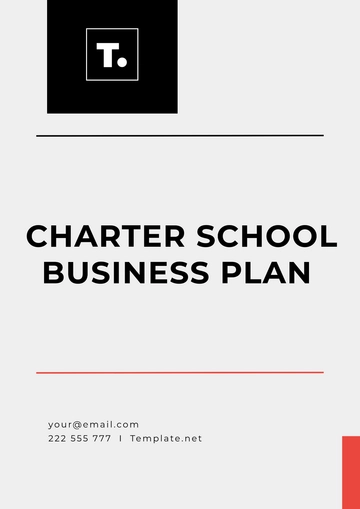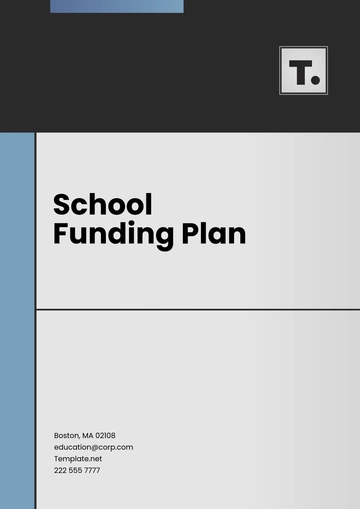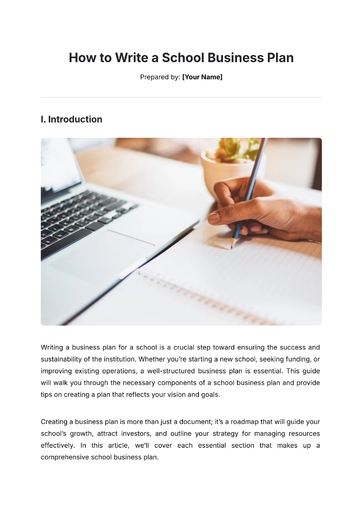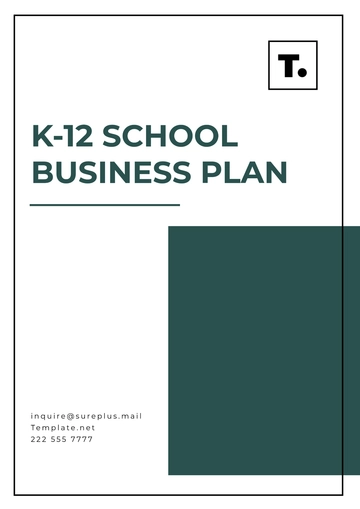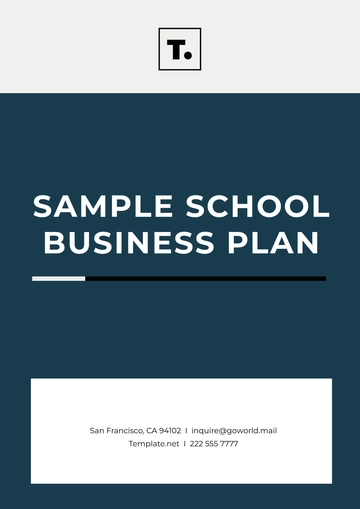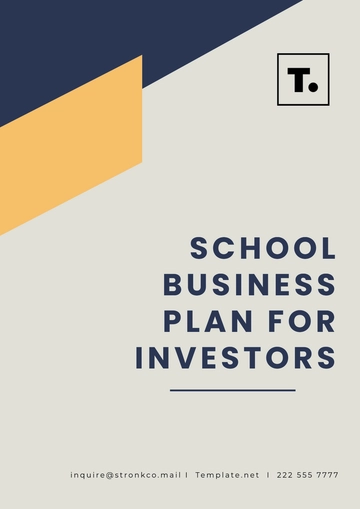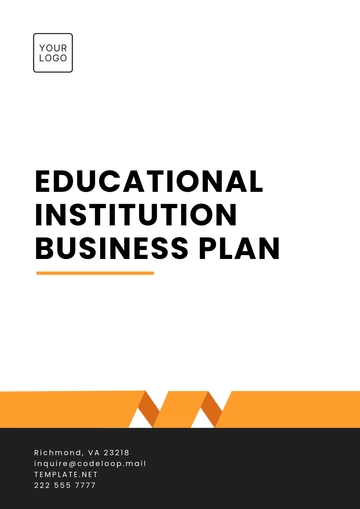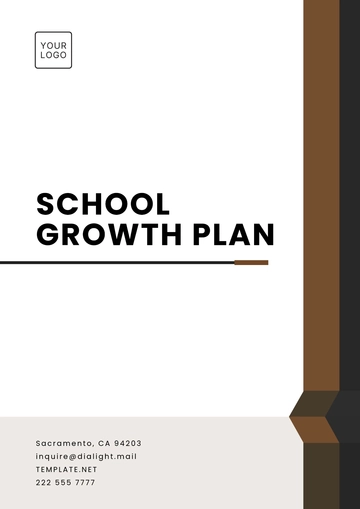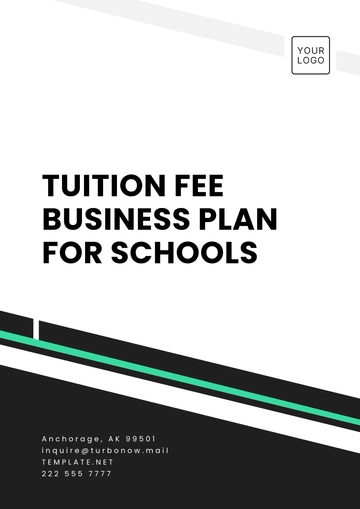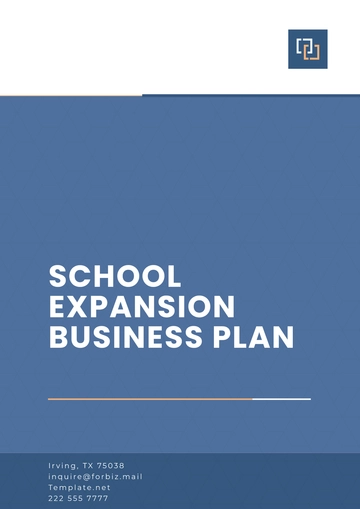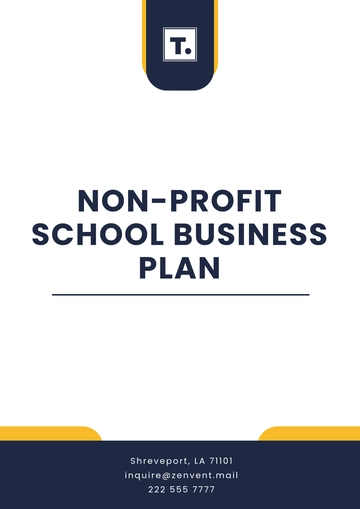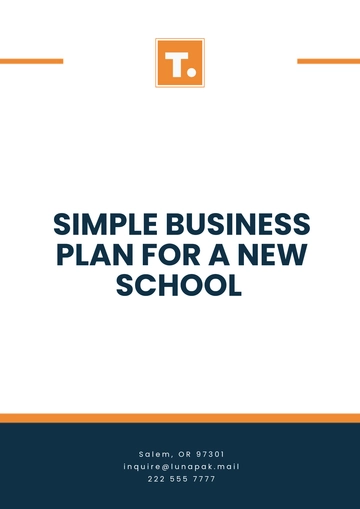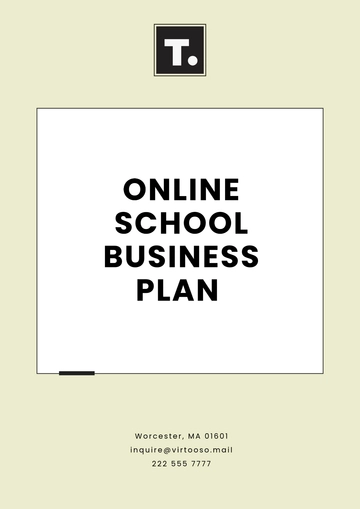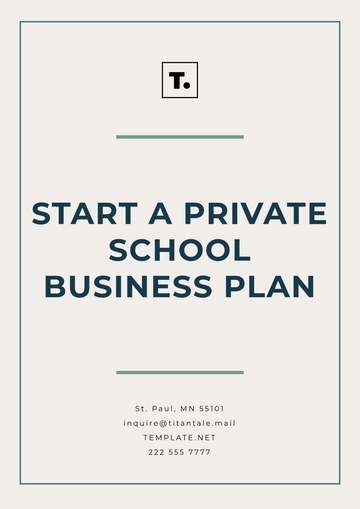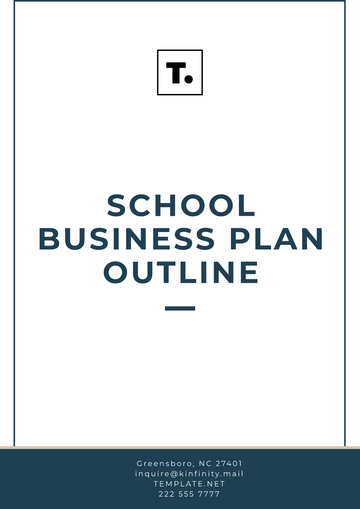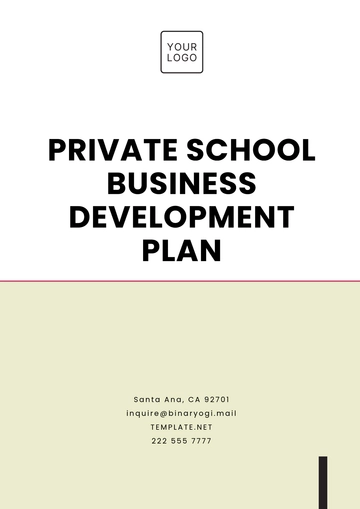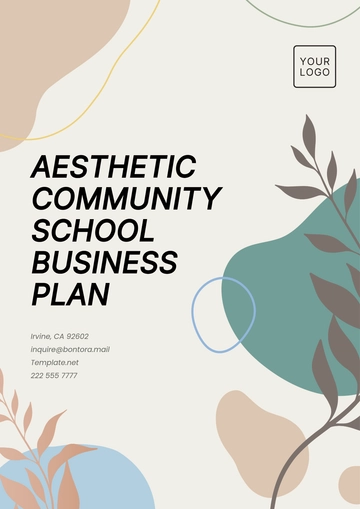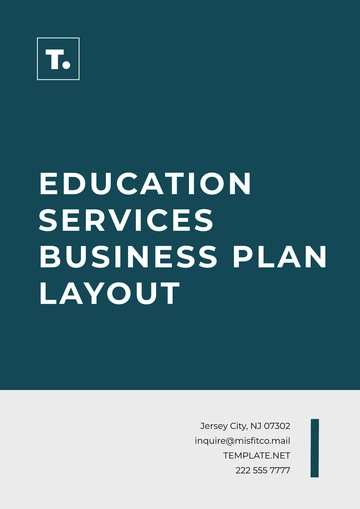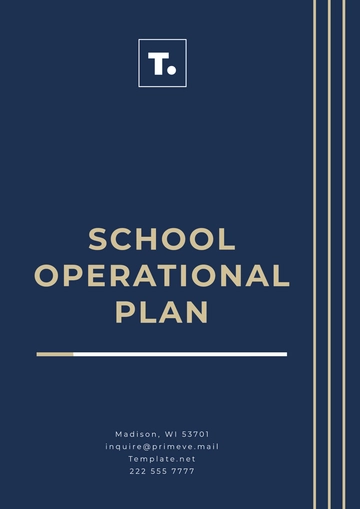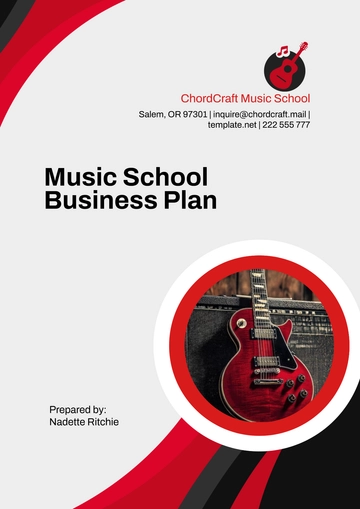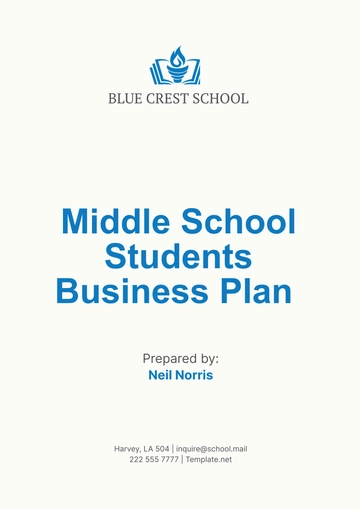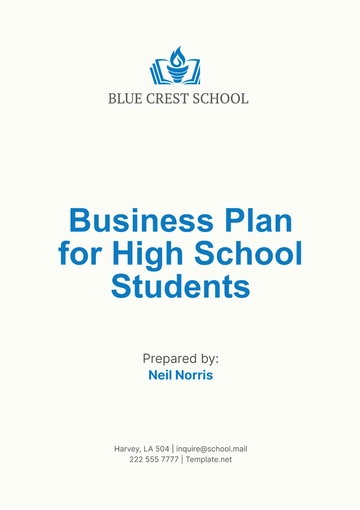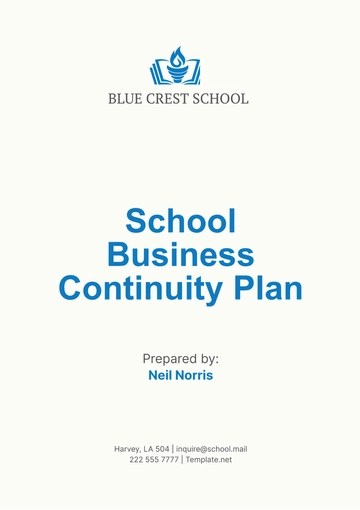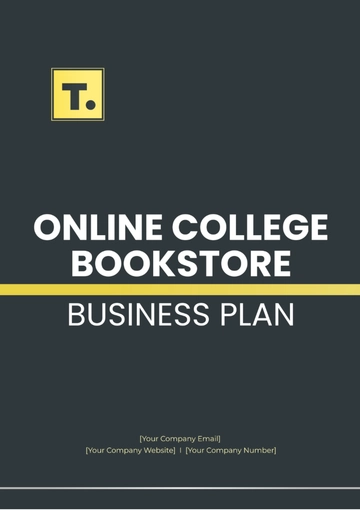Free K-12 School Business Plan
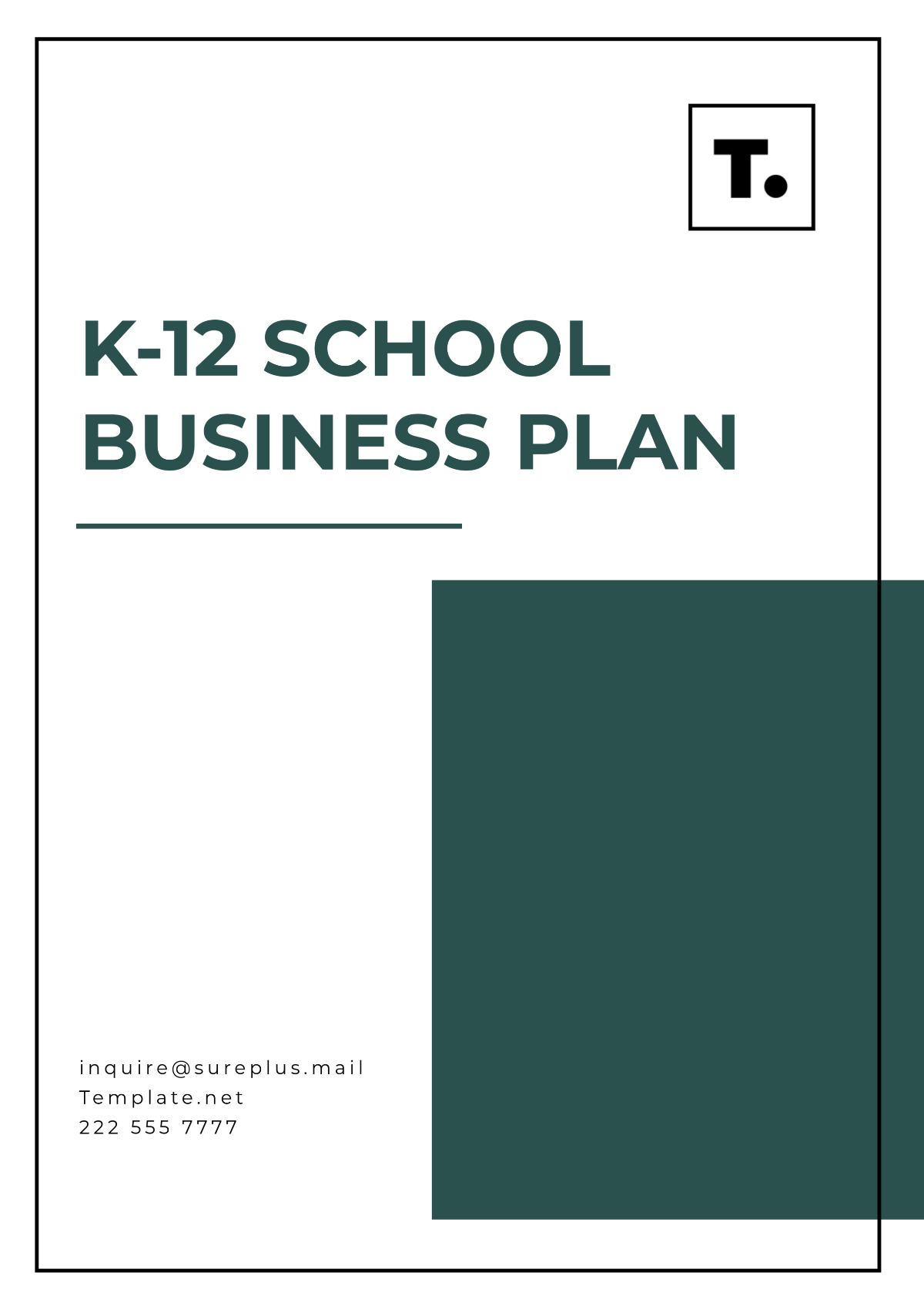
Executive Summary
School Name: [Your Company Name]
Location: [Your Company Address]
Business Structure: Private K-12 School
Mission Statement: To provide a nurturing and innovative learning environment that fosters academic excellence, emotional growth, and community involvement for students from kindergarten through grade 12.
Vision: To become a leading institution in holistic education, producing well-rounded students equipped with the skills and values to thrive in the global society.
School Overview
School Type: Private K-12 School
Grade Levels: Kindergarten through 12th grade
School Size: 500 students in the first year, expanding to 1,200 students within 5 years
Accreditation: State and national accreditation (pending)
Curriculum Focus: Academic rigor with emphasis on STEM, arts, social-emotional learning, and leadership development.
Market Analysis
Target Market:
Primary Audience: Families seeking a high-quality education with personalized attention, focusing on academic achievement, emotional intelligence, and character development.
Secondary Audience: Parents interested in extracurricular activities such as arts, sports, and clubs that contribute to overall child development.
Market Needs:
A growing demand for high-quality private schools in New York, offering advanced curriculum and extracurricular programs.
A rising need for personalized education, where students are supported academically and socially, in an increasingly diverse educational landscape.
Community engagement and family-centered educational experiences are also increasingly valued by parents.
Competitive Analysis:
Local public schools, other private institutions, and charter schools.
[Your Company Name] will differentiate itself through personalized attention, small class sizes, a robust extracurricular program, and a focus on preparing students for college and career readiness.
Organizational Structure
Ownership: Private school, owned by the founders and managed by a Board of Directors.
Management Team:
Founder/CEO: Responsible for overall strategy, fundraising, and community relations.
Principal: Oversees daily operations, curriculum, faculty, and student performance.
Academic Directors: Responsible for the curriculum development and delivery for each grade level.
Administrative Staff: Handles student records, admissions, payroll, and other administrative duties.
Support Staff: Includes teaching assistants, custodians, counselors, and extracurricular coaches.
Curriculum and Programs
Core Curriculum: Follows state educational standards but with a focus on personalized learning. Includes English, Mathematics, Science, Social Studies, Physical Education, and Foreign Languages.
STEM Program: Focus on science, technology, engineering, and math with lab-based learning and coding courses.
Arts Program: Including visual arts, music, theater, and dance to promote creativity.
Social-Emotional Learning (SEL): Programs to enhance self-awareness, self-regulation, and interpersonal skills.
College and Career Readiness: Programs aimed at preparing high school students for college, including SAT prep, internships, and career counseling.
Extracurricular Activities
Sports: Basketball, soccer, volleyball, track and field, and swimming.
Clubs: Debate, robotics, drama, music, and environmental club.
Community Service: Opportunities for students to engage in volunteer work and community service projects.
Marketing and Sales Strategy
Branding: Establish the school as a nurturing yet challenging educational institution through professional branding, including a user-friendly website, brochures, and a social media presence.
Community Engagement: Hold open houses, parent forums, and school events to showcase the school's offerings and build relationships with local communities.
Partnerships: Collaborate with local businesses, universities, and non-profits to create internship and volunteer opportunities for students.
Referral Program: Implement a referral system to encourage current families to refer prospective families to the school.
Financial Plan
Initial Investment: $10 million (secured through personal savings, investor funding, and possible grants).
Revenue Sources:
Tuition: The primary revenue source. Average tuition per student: $15,000 annually.
Grants and Donations: Seeking grants for educational programs, capital improvements, and operational support.
Fundraising Events: Hosting annual fundraising events, such as auctions or galas, to support school development and scholarships.
Other Income: Income from summer camps, after-school programs, and facility rentals for events.
Projected Income and Expenses (Year 1 - 2050):
Revenue:
Tuition: $7.5 million (500 students)
Donations: $500,000
Fundraising: $250,000
Other Income: $200,000
Expenses:
Salaries (teachers and staff): $4.2 million
Facility and maintenance: $1.1 million
Supplies and curriculum: $500,000
Marketing and recruitment: $150,000
Utilities and other operational costs: $600,000
Net Profit/Loss: $2.5 million
Milestones and Timeline
Year 1 (2050): Establish the school, enroll 500 students, and launch the core curriculum.
Year 2-3 (2051-2052): Expand to 750 students, hire additional teachers, and launch extracurricular programs.
Year 4-5 (2053-2054): Reach full capacity of 1,200 students, offer advanced placement (AP) courses, and initiate school-wide STEM and arts programs.
Long-Term Goals (2055-2060): Expand facilities, enhance technology integration, and increase community involvement.
Risk Analysis
Risk of Low Enrollment: Mitigated through effective marketing, community outreach, and a unique educational offering.
Competition: Overcome by providing superior personalized education, extracurricular activities, and college preparation programs.
Economic Factors: Addressed through financial aid programs and a diversified revenue stream that includes donations and fundraising events.
Conclusion
[Your Company Name] is poised to make a significant impact on the education sector in New York by 2050. By offering a robust, well-rounded academic and extracurricular program, we are dedicated to preparing students for future success in college, career, and life. Our focus on community involvement and student-centered learning will set us apart and ensure that we meet the evolving needs of our students and their families.
- 100% Customizable, free editor
- Access 1 Million+ Templates, photo’s & graphics
- Download or share as a template
- Click and replace photos, graphics, text, backgrounds
- Resize, crop, AI write & more
- Access advanced editor
Build a strong foundation with Template.net’s K-12 School Business Plan Template. Customizable and editable, this template highlights operational, academic, and financial strategies. Editable in our AI Editor Tool, it’s designed for comprehensive K-12 planning. Download now to streamline your educational goals.
You may also like
- One Page Business Plan
- Coffee Shop Business Plan
- Restaurant Business Plan
- Food Business Plan
- Real Estate Business Plan
- Executive Summary Business Plan
- Cover Page Business Plan
- Nonprofit Business Plan
- Daycare Business Plan
- Construction Business Plan
- Startup Business Plan
- Medical Business Plan
- Bakery Business Plan
- Service Plan
- Hotel Business Plan
- Catering Business Plan
- School Business Plan
- Healthcare Business Plan
- Transportation Plan
- Sports Plan
- Car Wash Business Plan
- Salon Business Plan
- Clothing Business Plan
- Farming Business Plan
- Boutique Plan
